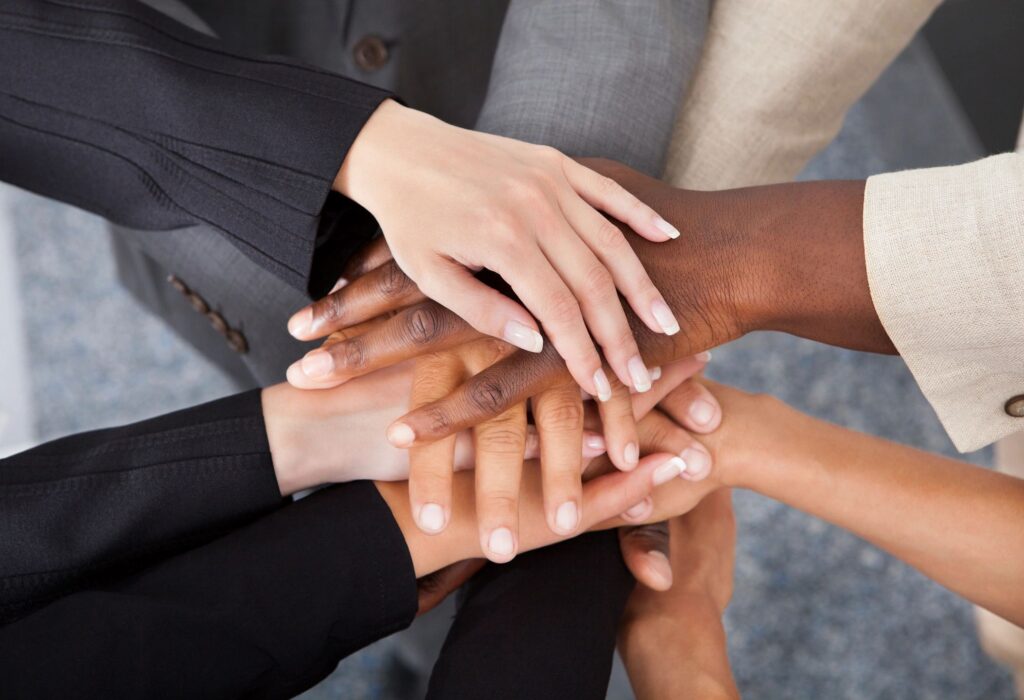
The Real World Benefits of Expressing Gratitude
Gratitude: As Old as Animal Kind
Gratitude may be an evolutionary component of human development, passed down for thousands of years according to sociologist Georg Simmel (Greater Good Magazine, n.d.). While we may think of it as something personal and internal, it is also considered an important social skill that helps humans interact with each other. Researchers as far back as Charles Darwin have been suggesting that the expression of emotions related to gratitude help us feel connected (Suchak, 2017).
While humans may say 'thank you' or similar responses when we feel grateful, we also express our gratitude in non-verbal ways. For example, we may give gifts to others to demonstrate our gratitude or we may just smile and nod to show our appreciation. Animals respond similarly. A study of chimpanzees found that chimps were more likely to help other chimps if that chimp had helped them before. In other words, chimpanzees express gratitude by being more likely to help (Suchak, 2017). This may suggest that as an evolutionary component, gratitude may have been developing in us for not thousands, but perhaps millions of years.
The Benefits of Gratitude
The expression of gratitude, such as saying 'thank you' or giving a gift, not only helps us feel better because we are focusing on the positive emotions associated with gratitude, it may also improve our functioning . Balconi et al. (2019) looked at the impact of gift exchange and timing on performance. They found that those who exchanged gifts at the beginning of a task immediately performed better than those who did not exchange gifts. Interestingly, they also found that participants who exchanged gifts half way through a task saw the same improvements immediately following the exchange. These improvements were found in cognitive performance and cooperative relationships.

Recent research has also identified interesting patterns among women and men. In a relatively large study of 576 participants, Pres et al. (2020) measured gratitude, self-esteem, and emotional intelligence among males and females aged 14-86. They found that gratitude was positively correlated with self-esteem, emotional intelligence, and readiness to help others. They also found that women and young adults experienced the highest levels of gratitude compared to men, adolescents, and older adults. Self esteem was highest in young adults and lowest in mature adults. The authors suggest issues of health, social status, and social roles play a significant role in our sense of self. Emotional intelligence was lowest among adolescents and highest among young adults, which may be a reflection of their stage in life.
The Expression of Gratitude
How we express our gratitude may be related to both our age and our sex. Pres et al. (2020) found some interesting differences based on these variables. While age was not found to be related to the awareness of gratitude, adolescents were more likely to pay for a received good with money and less likely to say 'thank you' for a small gift. The mean age in the adolescent group was 14 so it is interesting to note that the money they are offering as payment is likely to be their parents' rather than their own. Adults were nearly opposite, with more willing to say 'thank you' and some adding an invitation to dinner or coffee. Again, the value of money versus positive relationships may play a role in how we express our gratitude toward others.
Interestingly, the researchers also found that we tend to show our gratitude in a very similar way to how it was received (Pres et al., 2020). For example, when participants were asked how they would show their gratitude for receiving a gift, most said they would likely respond by giving a gift in return. When asked how they might respond to a less tangible offering, the more common responses were related to saying 'thank you' or an offer to spend time together. Men were more likely, at least in their sample, to respond to a gift with material repayment, while women were more likely to offer verbal thanks and time together.
Dr. Robert Emmons from the University of Minnesota studies gratitude and happiness and believes in the importance of practicing gratitude on a daily basis. He warns us, though, that adding another daily task to an already busy life can turn this practice into a burden rather quickly. Instead, he suggests that we work gratitude into our normal life by paying attention to the positive as we go about our days. In a recent video, Emmons (2017) talks about other obstacles that get in the way of our practice of gratitude.
Gratitude in the Real World
Studies like these demonstrate the relationship between gratitude and positive emotions and a greater sense of connectedness with others. They show correlations between gratitude and cognitive performance and cooperative relationships. The expression of gratitude has been shown to help us form bonds with others and may have been developing within us as an evolutionary process for thousands or even millions of years.

If we believe that gratitude can bring about both interpersonal and intrapersonal benefits, can purposefully focusing on gratitude bring about or amplify these benefits? Research suggests that it can. For example, Armenta et al. (2020) split ninth- and tenth-grade students into two groups. The experimental group was asked to spend ten minutes each week for four weeks writing gratitude letters to their parents, teachers, coaches, or friends and participating in gratitude reflection activities. The other group, referred to as the control group, spent the same amount of time listing their daily activities and reflecting on obstacles and benefits.
Armenta et al. (2020) found that the group assigned the gratitude tasks reported greater life satisfaction and motivation related to self-improvement. These benefits held for the remainder of the semester and were related to feelings of connectedness and indebtedness to others.
Results like this suggest that while gratitude is evolutionary and part of our shared existence, it is still very much under our control. We can apply gratitude activities in a purposeful manner to bring about a multitude of benefits. The research reviewed in this post suggest that purposefully looking for opportunities to express gratitude and to respond to the gratitude of others can bring us closer together and help us improve our life satisfaction and overall well-being.
What are you grateful for? Who are you grateful for? How could you express your gratitude? How could you incorporate gratitude into your daily life?
References
Armenta, C. N., Fritz, M. M., Walsh, L. C., & Lyubomirsky, S. (2020). Satisfied yet striving: Gratitude fosters life satisfaction and improvement motivation in youth. Emotion. Advance online publication. http://dx.doi.org/10.1037/emo0000896.
Balconi, M., Fronda, G., & Vanutelli, M. E. (2019). A gift for gratitude and cooperative behavior: Brain and cognitive effects. Social Cognitive and Affective Neuroscience, 1317-1327. doi: 10.1093/scan/nsaa003.
Emmons, R. (2017). things that get in the way of practicing gratitude. Vide. Retrieved from https://www.youtube.com/watch?v=ZD1plvJj9mM.
Greater Good Magazine (n.d.). What is Gratitude. https://greatergood.berkeley.edu/topic/gratitude/definition.
The PLOS ONE Staff (2014) Correction: Give What You Get: Capuchin Monkeys (Cebus apella) and 4-Year-Old Children Pay Forward Positive and Negative Outcomes to Conspecifics. PLOS ONE 9(4): e96959. https://doi.org/10.1371/journal.pone.0096959.
Pres, J. E., Kurpisz, J., Pełka-Wysiecka, J., Adamowicz, K., Suchecka-Fidura, D., Ilnicka, M., Mak, M., & Samochowiec, J. (2020). What regulates gratitude response of women and men? The role of the received good, psychosocial factors, and repayment. Psychological Reports, 123(2) 395–419.
Suchak, M. (2017). The evolution of gratitude. Retrieved from https://greatergood.berkeley.edu/article/item/the_evolution_of_gratitude.
